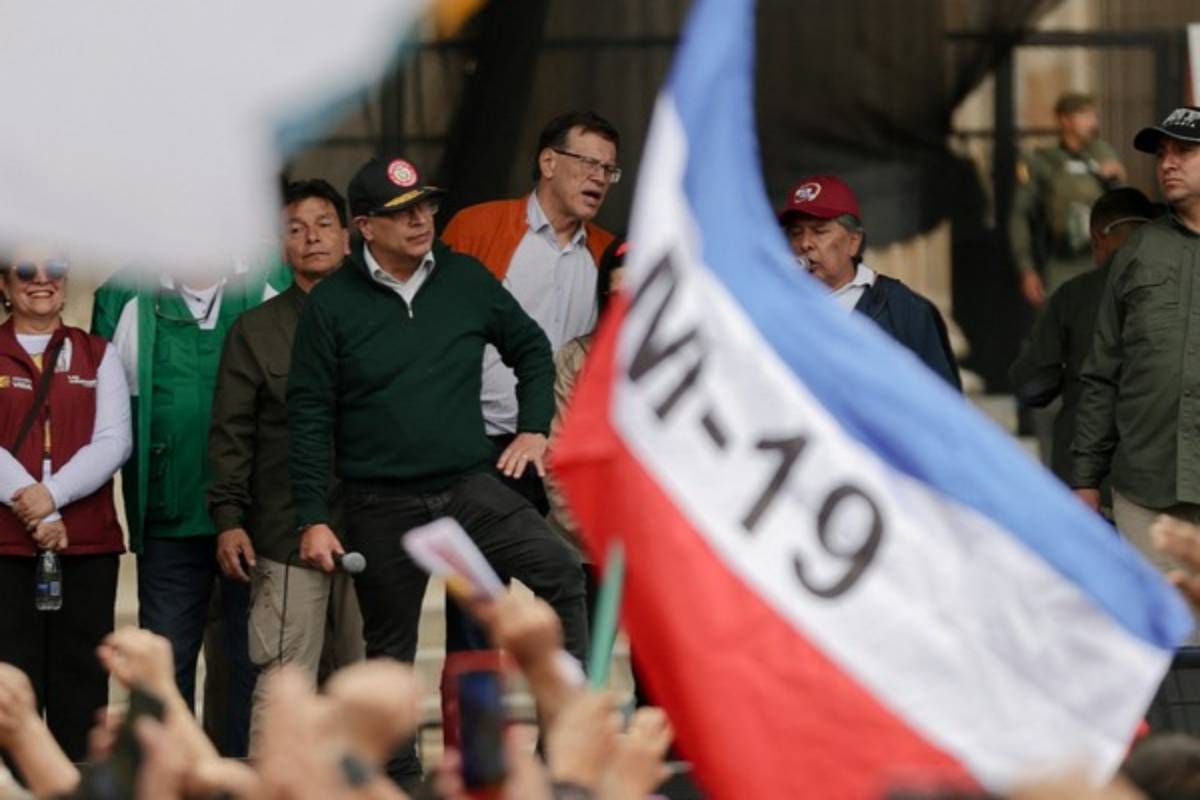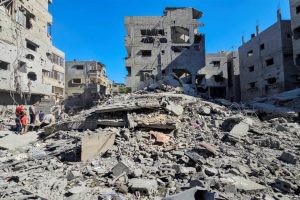Colombian President Gustavo Petro has declared intentions to sever diplomatic relations with Israel due to its actions in the Gaza Strip, a move criticised by human rights advocates and experts who caution against the possibility of genocide, Al Jazeera reported.
Addressing a gathering on International Workers’ Day in Bogota, Petro emphasised the necessity for countries to take active stances in response to the escalating crisis in Gaza.
“Here in front of you, the government of change, of the president of the republic, announces that tomorrow we will break diplomatic relations with the state of Israel … for having a government, for having a president who is genocidal,” Petro declared.
A steadfast leader of the left-wing faction, President Petro has emerged as a prominent figure in the Latin American political landscape, aligning himself with the progressive wave known as the “pink tide”. Since assuming office in 2022, he has been a vocal critic of Israel’s actions, particularly in the context of the Gaza war, as reported by Al Jazeera.
The rift between Colombia and Israel deepened in October, following Petro’s condemnation of Israeli Defence Minister Yoav Gallant’s rhetoric, which he likened to that of the Nazis. Gallant’s description of Gaza as inhabited by “human animals” during a period of heightened conflict elicited sharp rebuke from Petro, resulting in Israel halting security exports to Colombia.
Subsequently, Petro escalated his criticism, accusing Israel of perpetrating genocide in the besieged Palestinian enclave. Such allegations drew fierce condemnation from Israeli officials and pro-Israel advocacy groups, further straining bilateral relations.
In a significant move, Colombia suspended its purchases of Israeli weapons in February, citing concerns over the use of force against Palestinians in Gaza.
Petro evoked poignant parallels, invoking the spectre of the Holocaust as he decried Israeli actions as reminiscent of historical atrocities.
The Colombian president’s latest pronouncement comes amidst mounting apprehension over the prospect of an Israeli ground offensive in Rafah, a southern city in the Gaza Strip. United Nations chief Antonio Guterres has cautioned against such escalation, warning of dire consequences for civilians caught in the crossfire.
The toll of the conflict is staggering, with over 34,500 Palestinians perishing in Israel’s military offensive thus far. The Gaza Strip grapples with a looming humanitarian crisis, exacerbated by relentless violence and crippling siege measures. Experts warn of impending famine, underscoring the urgency of addressing the plight of the enclave’s inhabitants, according to Al Jazeera.
Israel’s response to Colombia’s decision to sever diplomatic ties remains elusive, as the government refrains from immediate comment. However, Colombia’s pursuit of justice extends beyond mere diplomatic gestures, as it seeks recourse through international legal avenues.
In early April, the Colombian government petitioned to join a case at the International Court of Justice (ICJ), alleging Israel’s commission of genocide against Palestinians. The move underscores Colombia’s commitment to upholding the rights and dignity of vulnerable populations, particularly women, children, persons with disabilities, and the elderly, in Gaza.
The ICJ’s ruling in January, acknowledging the plausible risk of genocide faced by Palestinians in Gaza, lends credence to Colombia’s pursuit of accountability. UN Special Rapporteur Francesca Albanese’s findings further validate these concerns, highlighting the grave nature of Israel’s assault on Gaza and its catastrophic impact on Palestinian lives.
Israel vehemently denies accusations of genocide, dismissing Albanese’s report as a distortion of reality. Yet, amidst mounting evidence and international scrutiny, the quest for justice for the victims of the Gaza conflict remains an urgent imperative on the global stage, Al Jazeera reported.





